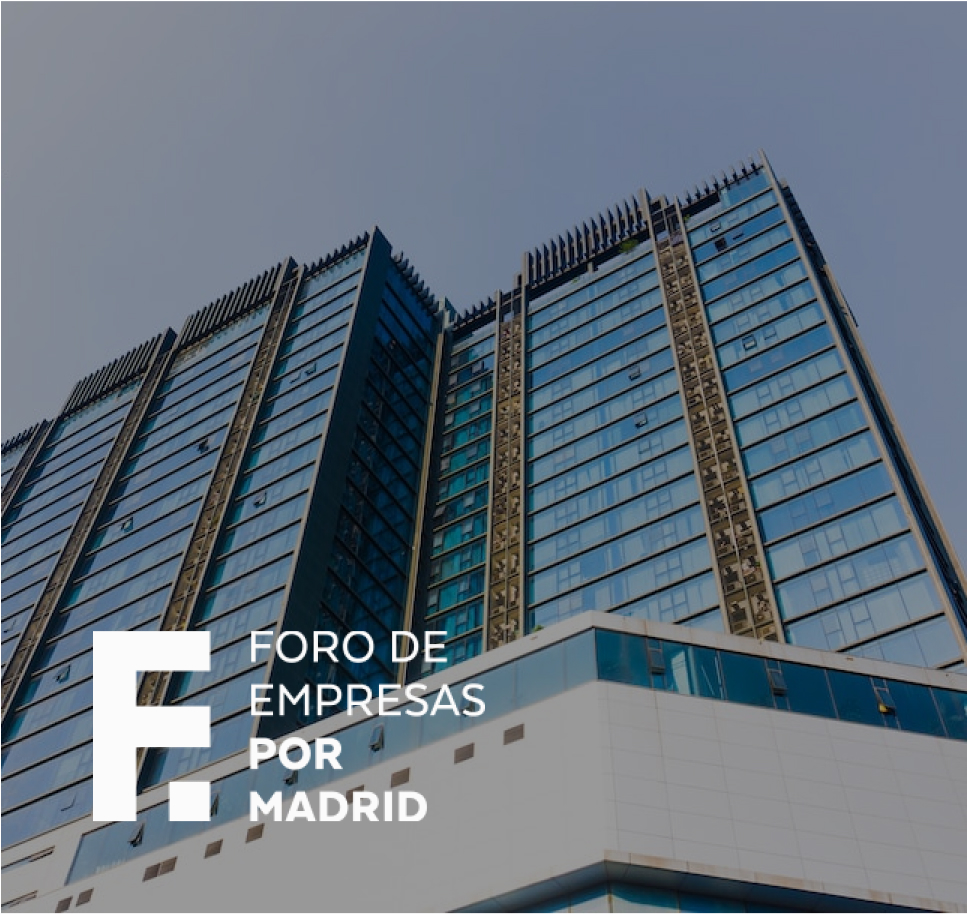The Laboratory
The Madrid IoT Laboratory – IoTMADLab – is both a physical and virtual space aimed at defining a standardized IoT network model that is open, neutral, and interoperable to facilitate the direct connection between devices (equipment, sensors, and actuators) from different manufacturers and services.
Collaborating closely with the City Council, service technicians, responsible companies, and their respective technological providers, our goal is to advance the implementation of these solutions in real-world settings, once they have been properly validated.
The significance of the IoTMADLab lies in its ability to catalyze the digital transformation of cities, promoting the use of smart and connected technologies that enable more efficient resource management and greater citizen involvement in decision-making. Additionally, the laboratory encourages collaboration and knowledge sharing among various stakeholders, contributing to the creation of an urban innovation ecosystem.
Our objectives
The laboratory aligns with the goals set out in the Madrid Digital Capital strategy.
Digital capabilities
Enhance the city’s digital capabilities to strengthen Madrid’s position as a digital hub and focal point for attracting and retaining investment and talent.
Presence in European and international networks
The IoTMADLab aims to serve as a lighthouse initiative for other European cities to establish and define standards and policies for the digitization of cities. In this regard, we have received messages of support from the European cities network Eurocities, directly from the European Commission, and from the European Living-Labs network.
Multidisciplinary teams
New working modalities are incorporated that embrace cross-functionality, involving research workgroups, academics, businesses, and municipal staff. By breaking down data silos and vertical management solutions, we aim to build the city of tomorrow today.
New models of technology governance
We are analyzing new models of technology governance for a better city response to the challenges of the 21st century and to the European strategies that are shaping the configuration of cities in the 2030-2050 horizon.
Facilities
The laboratory features 3 distinct areas to implement innovative IoT-based solutions that can be scaled in the city of Madrid and replicated in other Spanish and European cities.
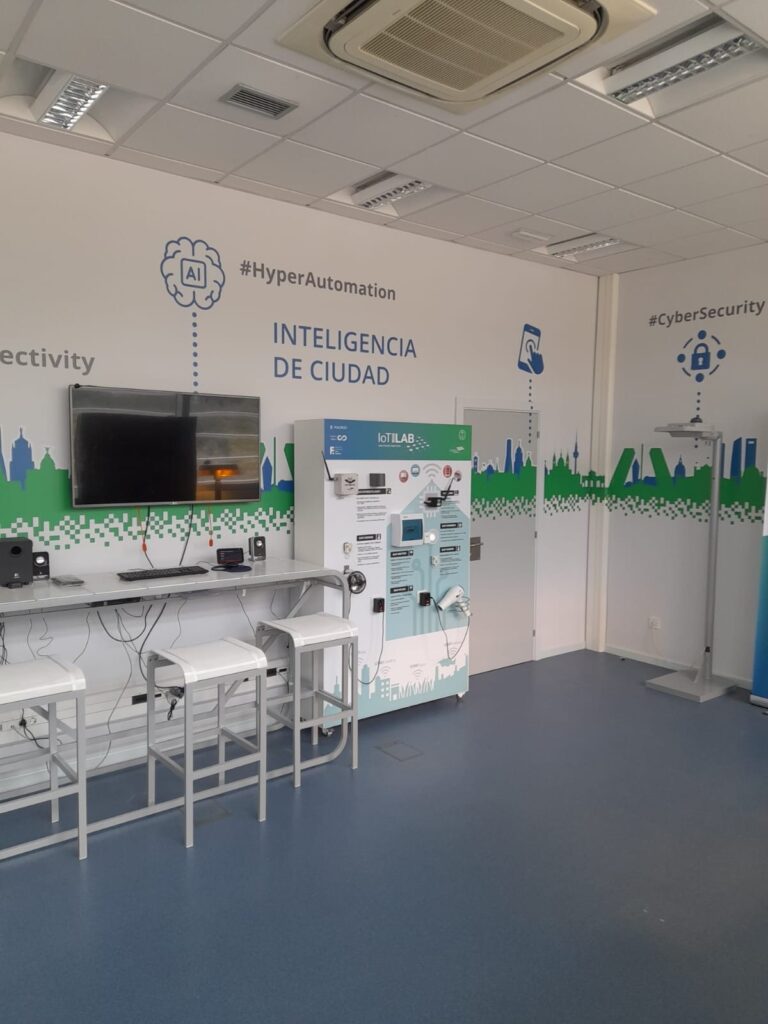
Testing Laboratory
The first area is a laboratory where test batteries can be designed and carried out to ensure interoperability and compatibility at the hardware and communication protocol levels of the received devices and sensors. Working together with municipal departments, service provider companies, and device manufacturers, the aim is to define a reference architecture to establish a framework that allows cities to implement and use IoT technology efficiently and effectively while ensuring consistency and interoperability among different devices and systems.
Pilot Installation Area
Once the interoperability of the equipment has been verified in the laboratory, the analyzed technology is deployed and tested in a controlled yet real-world environment. In this area, the devices are exposed to variables and conditions they might encounter in actual situations, allowing for monitoring and evaluation of their performance in a more genuine setting. This ensures that issues, incompatibilities, or unforeseen challenges can be identified and resolved before the devices are broadly adopted. The impact of interoperability on urban services is closely examined here, not just for a particular device but across the entire network or system to which it’s connected. The goal is to conceptualize and design a smart public space that’s hyperconnected and hyper-automated.
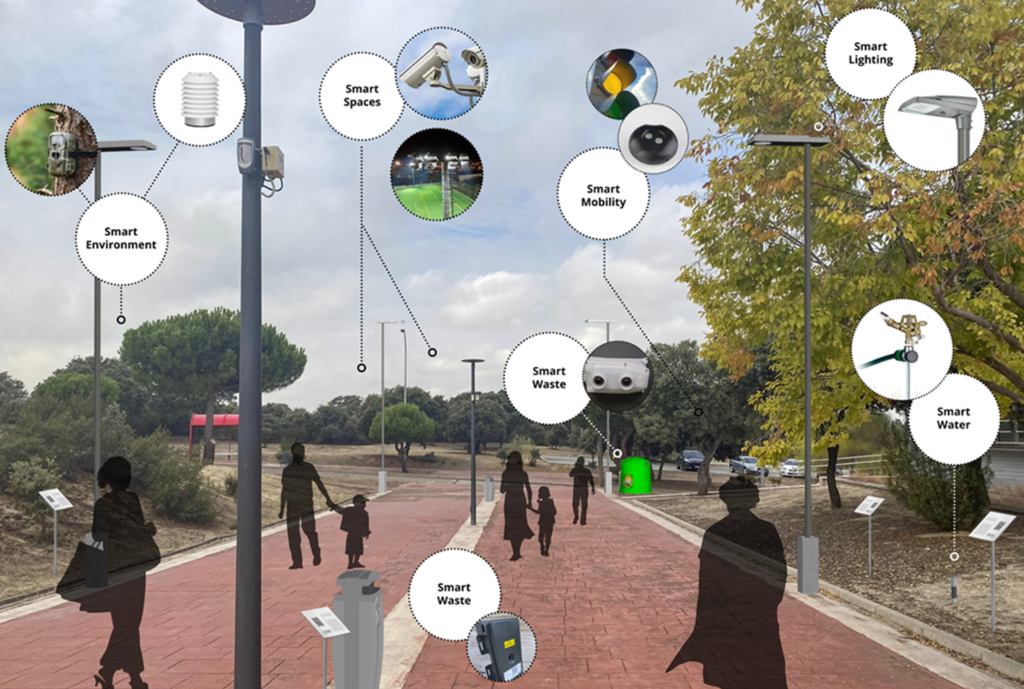
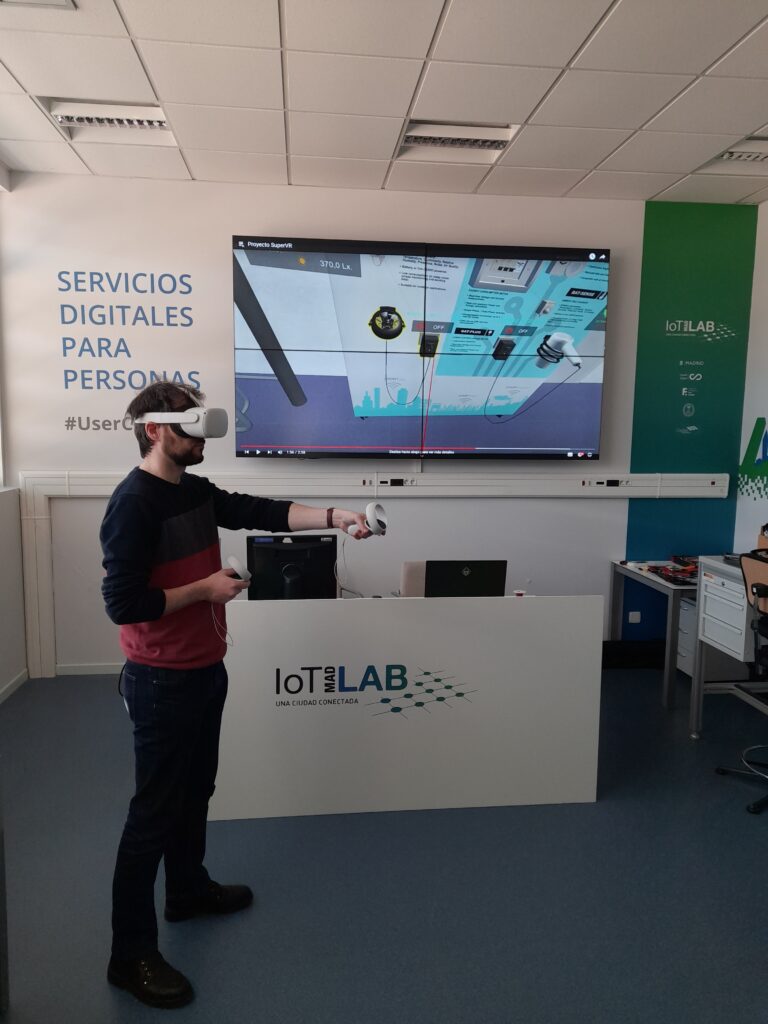
Virtual reality laboratory
In this laboratory, the digital twin of the IoTMADLab is designed and implemented using Virtual Reality, faithfully replicating the aesthetics and functionalities of the real environment. This tool allows experts to simulate and test different aspects of the system in real-time (such as testing communications, emulating services and features, and visualizing interactions and behaviors of devices within the system), aiding in decision-making and the anticipation of challenges. For the general public, it offers the opportunity to explore and interact with this virtual environment, making technical concepts easier to understand.
Smart Urban Spaces
- SUS#1 Casa de Campo
- SUS#2 Valdemingómez
- SUS#3 Mercamadrid

SUS#1 Casa de Campo
The Large Gate at the entrance to the Casa de Campo Fairgrounds has been proposed as the first deployment of a first Smart Urban Space (SUS) in the city. This demonstrator space will allow citizen interaction with the possibilities of IoT technology, and involves addressing the need for interoperability between various Municipal Areas. The objective is to achieve the best personal experience with the services provided by the City Council, and to know its future.
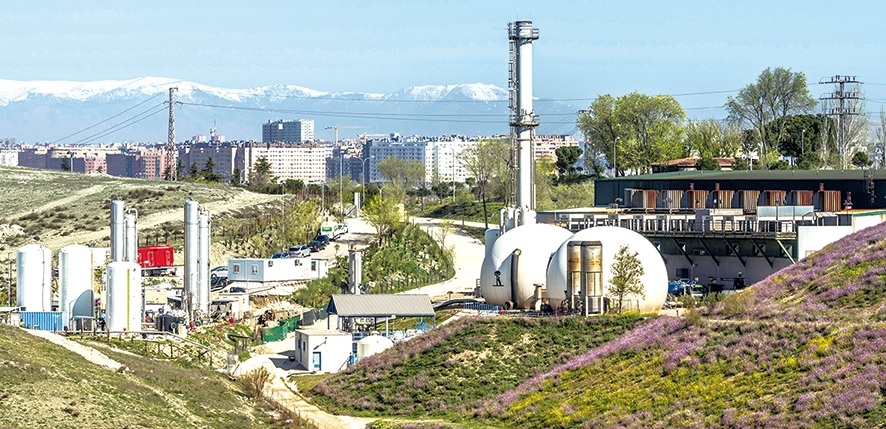
SUS#2 Valdemingómez
The Valdemingómez Technology Park is a very important industrial environment for the city of Madrid. Together with its Visitor Centre, this Smart Urban Space integrates safety in mobility, energy efficiency and environmental quality control, and opens the way to many sustainability-oriented projects.

SUS#3 Mercamadrid
MERCAMADRID, the largest market in Spain, feeds the city and its area of influence. Its frenetic and early morning activity takes place in a highly optimized physical space, and in it its Smart Urban Space focuses on the use of 5G SA to the autonomous vehicle (for people and goods) and IoT for V2X interaction (of the vehicle with its environment), and to energy efficiency (photovoltaic production, data market, smart consumption).
Funding
Every year, the technical secretariat of the Madrid Business FORUM asks the municipal areas for public-private cooperation projects interesting for the city, the economy and companies. After studying, a first selection is made. The chosen projects are presented to the representatives of the forum companies by the municipal officials. Finally, companies vote and choose the projects to be carried out each year.
In 2021, the Digital Office presented a project that was selected by the FORUM as one of the most appreciated funded projects by company representatives. The Internet of Things Laboratory of the city of Madrid, IoTMADLab, concretizes this initiative, and the first results are presented on 22 November
With its funding, the Madrid City Council has signed a collaboration agreement with the Center for Integral Home Automation (CEDINT) of the Polytechnic University of Madrid to support the Laboratory.
At the end of 2022, another project was proposed, which extended the scope of the previous one, allowing additional financing, through an addendum to the agreement, to incorporate 5G technology and enhance the specific cybersecurity aspects of these specialties.
